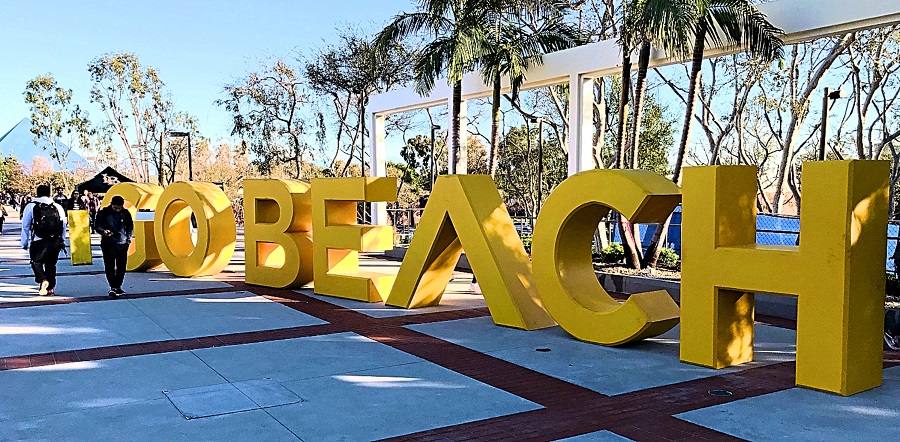Cal State Long Beach this semester became the first in the Cal State University system to have a mobile crisis unit with mental health professionals responding to mental health emergencies in place of campus police.
The effort, announced in honor of Mental Health Awareness Month in May, comes as part of a major overhaul to the university’s mental health services in response to a growing student need, officials said.
In all, the campus is launching 60 different initiatives aimed at identifying and supporting students’ mental health.
Beth Lesen, Vice President of Student Affairs, said the plan to ramp up mental health services was actually in the works before the pandemic, but now, it’s more important than ever as students return to campus after semesters of remote learning.
“Even before the pandemic, 69% of college presidents nationwide said mental health was a chief concern,” Lesen said. “Our main age group, 18 to 24, is the average age of initial onset for many issues, and it’s certainly been accelerated in the pandemic.”
In a campus survey, 86% of students report experiencing moderate or high stress in the past year, while 27% reported the death of a friend or family member from COVID-19.
Lesen said the pandemic has been especially challenging for minorities, first-generation and low-income students, and the campus will have a special focus on diversity and culturally informed practices.
The mobile crisis unit in place of police has long been requested by the campus community, she said. The unit has two mental health professionals who can respond to emergencies, with the possibility of expanding in the coming years.

“The idea is that we’d like to decrease the number of crises that need to be responded to by uniform officers,” she said. “Because when people are experiencing something as vulnerable as a psychiatric crisis, having a uniformed officer respond can be unsettling for anybody, but particularly for our communities of color.”
In other actions, the university will use a community of “Care Agents” of students, faculty and staff that can help proactively identify struggles and prevent a future crisis. The university will also expand support to students’ families and increase its Spanish language support.
In another major initiative, the campus has launched a text message-based outreach program that has so far seen promising results, Lesen said.
In a pilot program this semester, the campus targeted 1,400 mid-semester transfer students with text messages from peers to check in on any mental health needs at critical times, like mid-term exams or finals. Lesen said about half of the students texted back, with responses ranging from “I don’t need help right now, but I’m glad you’re doing this,” to “I do need help, my father just died.”
Lesen said the idea is to reach out to students first, without them having to be the ones to come forward.
This fall, the campus will expand the program to all of its 11,000 incoming students. Lesen said it’s important for students to know that the text messages are always from a real person, and they can text back at any time.
“It also just lets them know how much we care about them and we’re here,” she said. “It’s making a larger campus (of more 39,000 students) feel smaller.”
‘Bridging Wellness’ series offers workshops, events in honor of Mental Health Month

